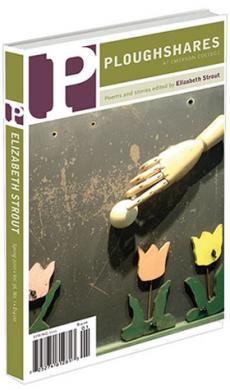Rev: The Geometry of God
Meeting with a young man torn between progressive and fundamentalist ideals, Zahoor, an elderly paleontologist, shows him the cupolas of the Great Mosque in Cordoba. It was built in a period, he argues, when Islam showed a different face to the world, a time when "faith meant devotion to multiple pleasures–mathematics, poetry, music, anatomy, calligraphy… The mosque in Cordoba reflects that vision. It could not be built today."
Set in Pakistan, Uzma Aslam Khan’s novel is an eloquent rebuttal to its own character’s claim about modern Islam’s single-mindedness. Skipping across eras and registers of culture–and showing devotion to pleasures as diverse as Elvis Presley and the Mu’tazilites, Aflatoon (the Arabic name for Plato) and evolutionary biology–it is both an example of and an argument for the essential hybridity of every society. "A language is like a person or a whale," Mehwish, one of Zahoor’s granddaughters, says, "it comes from something else…it is mixed not pure." In Pakistan, which literally means "land of the pure," this proves to be a dangerous sentiment for all the characters.
Mehwish mentions a whale in her list because Zahoor and a team of scientists are searching for the missing link between land mammals and the modern whale. Along with his other granddaughter Amal, he looks for fossils in the arid Potwar plateau, the site of the prehistoric sea of Tethys. On the day that the eight-year-old Amal stumbles upon a bone from a transitional whale, Mehwish, still an infant, is blinded after being left out in the fierce sun by a maid. For the rest of her adolescence, Amal will have to be her sister’s eyes–"I developed the habit of looking down," Amal says, a tendency which will serve her well when hunting for fossils as an adult, the lone female on every expedition.
Fossil hunting, however, has become a dangerous hobby in Pakistan–the book begins in the early ’80s, during the Zia dictatorship and the Soviet invasion of Afghanistan. The rising wave of fundamentalism makes Zahoor a marked man. In some ways, he enjoys the controversy.
During his lectures, he loves holding forth on philosophy and religion, as well as science, and this brings him to the notice of the Party of Creation, an Islamist group funded, ironically, with American dollars looking to combat Communism. The party leader’s son, Noman, is sent to take notes on one of Zahoor’s lectures, and he becomes entranced by both Zahoor and his two granddaughters. The false report Noman eventually gives of this lecture reverberates through the rest of the novel.
Amal, Mehwish, and Noman narrate the book in first-person chapters, passing the baton between them as the story proceeds. Months and years pass between sections: as Amal gets older, her sexuality increasingly isolates her from the male scientists who once included her in their circle; Mehwish develops her own curious way of classifying and interacting with the world; and Noman remains divided between his fundamentalist family and Zahoor’s more inclusive and confusing view of life.
All three narrators have distinct and convincing voices, with one similarity: like many people who keep switching between languages–in this case Urdu, English, and some Punjabi–they have developed a tactile relationship with language, and a corresponding love of wordplay. The book is stuffed with puns, both regular and cross-linguistic. This style is sometimes charming–"promise kiss" for promiscuous, for example–but occasionally tiresome, especially during Mehwish’s chapters. There is a hopelessly inadequate Urdu glossary in the back of the book, but then being lost is one of the pleasures of traveling.
The use of multiple narrators also becomes problematic as the characters grow older and more independent, because Zahoor’s story is lost along the way. He gets put on trial for blasphemy and is in limbo for several years, but this trial is never dramatized, and there are only summaries of what he is going through, since the narrators rarely get to interact with him. New characters and tangential subplots are introduced–a hidden romance, a sexual assault–and the conclusion of the book strikes me as less focused than what came before.
Nonetheless, there are always treasures buried among the rocks: a sparkling phrase, an intriguing bit of history, and, at least for readers outside of Pakistan, the realization that the same conversations that take place in America–about science and religion, modernity and the past–are taking place everywhere, and that the apparently decisive actions of a government, or a few loud fanatics, always conceal a welter of conflicting opinions. Khan’s sympathies clearly lie with Zahoor, with open questions instead of fixed answers, but she also dramatizes the costs of uncertainty. "The young Pakistani is a cultural freak," Noman’s father says in a speech. "His religion is whimsy…A small wind pulls him." These winds pull at the narrators throughout the novel, but they produce joy and knowledge, as well as anxiety. Some certainty may be nice, the novel seems to argue, but look at all the life you would have to shut out. No Plato, no Elvis, no Ibn Rushd–it’s too high a price to pay.

